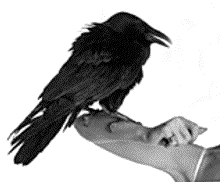Ways of knowing the field
International Conference on the History of Fieldwork, Cartography and Scientific Exploration
Text from: www.fieldstudies.dk/107581
Carlsberg Academy, Copenhagen, 13-15 August 2008
Call for Papers
This conference aims to bring together leading historians from a number of disciplines to explore different ways of knowing the field as they have been conducted within a range of technological and scientific practices.
Scholars wanting to present a 30-minute paper at this conference are invited to submit a 500-word proposal to the organizing committee before 1 March 2008 at cjries@ruc.dk.
Organizers
The conference is organized by The Danish Network for the History and Sociology of Scientific Fieldwork and Expeditions, and The Danish Research School in Philosophy, History of Ideas and History of Science.
|
Background
Since the 19th century, standards of credibility, objectivity and accountability have been defined according to ideals manifested in the carefully composed framework of the scientific laboratory. Fieldwork and cartography, on the other hand, are by definition conducted in intimate, unpredictable and unorganized interaction with particular places and with local actors that influence, shape and to some degree may even create end results.
While this may have earned knowledge produced in the field a reputation for being further removed from the scientific ideal set up by the laboratory standards, fieldwork remains a crucial tool for making the world knowledgeable. Traditionally, fieldwork, field studies and field sciences have served as collective designations for a host of heterogeneous of practices related to the collection and production of data, objects, maps and meaning. Measuring, counting, mapping, excavating, interviewing and experimenting - such activities have all been conducted `in the field' in order to provide information and material thus transformed into objects for technological or scientific processing elsewhere.
Historically, the botanical, zoological, geological, geographic and political sciences along with cartography were among the first areas of inquiry to go into the field in search of knowledge and discovery. A closer analysis of the cultural and historical variations of the roles of fieldwork in these as well as in other domains of knowledge will enhance our understanding of field practices, and their role in the production of meaning and knowledge about the world.
|
